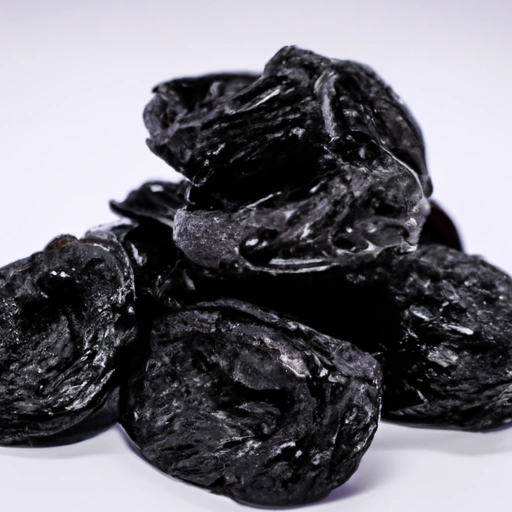Prune
Description

Prunes, the dried versions of plums, are a sweet, chewy, and nutritious ingredient commonly found in a variety of dishes around the world. They can be used whole, diced, or as a puree, and are renowned for their deep, rich flavor and natural sweetness. Prunes are easily incorporated into both sweet and savory recipes, making them a versatile component in the kitchen.
Common uses
Prunes are commonly used in baked goods, stews, sauces, and as a natural sweetener in various dishes. They are also enjoyed as a snack, providing a quick source of energy.
Nutritional value
Calories
Prunes contain approximately 240 calories per 100 grams (3.5 oz) or about 67 calories per ounce.
Protein
They offer around 2 grams of protein per 100 grams (0.7 oz) or about 0.56 grams per ounce.
Fat
Prunes are low in fat, with roughly 0.38 grams per 100 grams (0.01 oz) or 0.11 grams per ounce.
Carbohydrates
They are rich in carbohydrates, primarily from natural sugars, with about 64 grams per 100 grams (22.6 oz) or 18 grams per ounce.
Vitamins
Prunes are a good source of vitamins such as vitamin K, vitamin A, and several B-complex vitamins.
Minerals
They are also rich in minerals like potassium, magnesium, and iron.
Health benefits
Prunes are known for their digestive health benefits, primarily due to their high fiber content. They also contain antioxidants that help combat oxidative stress and may contribute to bone health and reduced risk of chronic diseases.
Potential risks
While prunes are healthy, excessive consumption can lead to digestive discomfort due to their high fiber and sorbitol content. Individuals with fructose intolerance should also consume prunes in moderation.
Common recipes
Prunes are featured in recipes such as tagines, stews, compotes, cakes, and energy bars. They are also used to make prune juice.
Cooking methods
Prunes can be stewed, baked, or blended. They are often rehydrated before being added to dishes to enhance their texture and flavor.
Pairing with other ingredients
Prunes pair well with meats like pork and chicken, spices such as cinnamon and cloves, and other dried fruits and nuts.
Summary
In conclusion, prunes are a valuable and healthful ingredient with a rich history and broad utility in recipes from around the world. They offer a wealth of nutritional benefits and culinary possibilities, from traditional stews to modern health-conscious dishes.